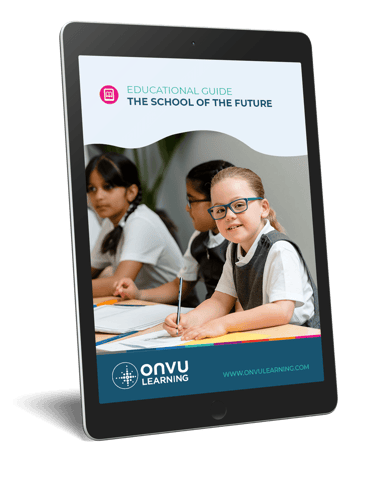- Blogs
- 3 Minute Read


There is a global shortage of teachers coming into the profession, and high numbers leaving after a short time in the classroom. Given that the quality of teachers ultimately underpins a country’s economy through its future workforce and the intellectual property they create, the quality and impact of initial teacher training is an issue for us all.
At the ResearchED Rugby conference last year, we asked educationalists what great teachers needed – you can see the videos here. They concluded that as well as subject knowledge, student engagement and classroom management, teachers also needed to be able to work together and be curious and engaged in learning throughout their careers. I’ve also spent time recently talking with current ITT students to see how their training matches up to this.
Teachers also needed to be able to work together and be curious and engaged in learning throughout their careers. Read our series of 8 articles on Lesson Observation here.
It seems clear that three key changes have to be made,
In this article, we look at improving support by using video technology to share lessons and enable faster and better feedback from experts.
Sign up to our newsletter to make sure you receive the next articles in this series as well as the latest evidence on classroom observation. Or read the first in the series on meaningful lesson observation here.
We all know that feeling when a more experienced teaching colleague slides “unnoticed” into the back of your classroom. Far from the truth! You notice, the students change and what is taught probably doesn’t deviate from a well thought out lesson plan, irrespective of its worthiness to the learning taking place.
This is the well-known Hawthorne Effect. Whilst some elements noticed by the observer will no doubt have value for teacher coaching there is a “cost of distraction” here and the outcomes are not as meaningful as they could be.
Added to this, your colleague has probably had to miss a lesson and set cover work to observe you – and will have to do the same again to give you feedback. Or if they’re a mentor from an initial teacher training (ITT) institute they’ve probably travelled for half an hour or more to get to your school – assuming you’re not in a remote location.
ONVU Learning has been carrying out detailed action-based research in this area with our partner schools. We have been continuously evolving our 360-degree video capture technology to capture a complete lesson with negligible intrusion. Rather than being stuck in one place, those reviewing the lesson can now pan and manipulate the view of the classroom to explore all areas of activity, zooming into see interactions between individual students. In the world of Dame Alison Peacock of the Chartered College of Teaching, we are truly ‘providing windows into classrooms’.
From the first we’ve used this technology to let teachers review their own lessons or those of colleagues, but recently we’ve been expanding this to explore the potential benefits of sharing footage securely online. We’ve now demonstrated in practice that experienced teacher trainers can deliver effective support over any distance, saving huge amounts of time and money while developing effective and open relationships.
The future potential seems obvious. What if ITT mentors could make fewer visits and focus them around personal coaching sessions, while observing many more lessons in greater detail from their office? What if they could themselves pass on lessons to colleagues with special expertise where needed – for example experts in SEN issues or PSHEE? Or if they could use selected examples from lesson (with suitable permissions) to support face-to-face training in universities?
Thinking even more widely, could we create a new career path here for expert teachers who do not want to remain in full-time teaching but can offer flexible home-based mentoring and support? Or for countries like the UK that have many experienced teachers and a common language with countries that are struggling to produce the teachers needed to support their country’s economic development. Could we link centres of excellence with schools that need specialist support? We’d love to hear your ideas!
Have a look at our case studies >> and what we have done so far, we will shortly be publishing other ones to evidence what can be achieved with long distance coaching.
If you would like to get involved with our work in this area and help trial our solutions please get in touch.

The School of the Future Guide is aimed at helping school leaders and teachers make informed choices when designing the learning environments of the future using existing and upcoming technologies, as they seek to prepare children for the rest of the 21st century – the result is a more efficient and competitive school.
KEEP IN TOUCH WITH ONVU LEARNING AND RECEIVE THE LATEST NEWS ON EDTECH, LESSON OBSERVATION, AND TEACHER TRAINING AND DEVELOPMENT.